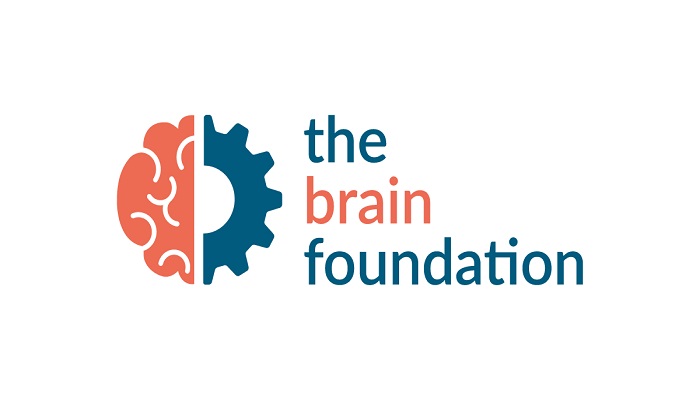The BRAIN Foundation announced Synchrony 2022, the first and only international symposium on translational research in autism, bringing together academia, biotech, pharmaceutical companies, and venture partners from around the world with the mission to improve the health and quality of life for people with autism. Synchrony 2022 will run for three days, Dec. 2-4, in Pleasanton. To register, please visit https://synchronysymposium.com.
Global leaders in academia and industry are expected to attend Synchrony 2022.
“Synchrony is the must-attend forum to connect with the bleeding-edge of autism innovation and the innovators,” said Ashok Srinivasan, Ph.D., chief scientific officer at Autism Impact Fund.
“The BRAIN Foundation’s annual Synchrony symposium is a much anticipated event for the ASD community. In a short period of time since its inception, Synchrony has become the premier research conference for biomedical innovations for both academic and industry-related ASD researchers,” said John Slattery, co-founder and CEO, BioROSA Technologies.
“I am excited to be attending The BRAIN Foundation’s Synchrony 2022 symposium. It is a great event that is becoming one of the better meetings to discuss and learn more about the development of treatments for individuals with ASD,” said Kevin Sanders, global development lead of autism, product development neuroscience, F. Hoffmann-La Roche.
Symposium News Highlights:
- $1 million in grants to be awarded to researchers at Stanford, UC Davis, Massachusetts General Hospital, Notre Dame, Oklahoma, Wisconsin, Yale and more.
- Equity investment in JelikaLite and a partnership with PaxMedica to support pioneering startups developing novel treatments through the FDA regulatory process.
- For the first time, Synchrony will be offering continuing medical education (CME) credits for physicians, researchers and clinicians at nearly half of its 30 sessions.
Autism is the fastest growing developmental disability today, with 1 in 44 children diagnosed in the U.S. leading to spending of $461 billion in care-related services by 2025. There are only two FDA-approved treatments, neither of which alleviate the core disabling symptoms of autism.
“The health and quality of life for people with autism and neurodevelopmental disorders is greatly impacted by many co-occurring conditions such as epilepsy, sleep disorders, anxiety, depression, apraxia, sensory sensitivities, as well as communication and executive functioning related disabilities,” explained Sarika Agrawal, co-founder and board member. “As a 501(c)(3), The BRAIN Foundation is catalyzing research that will lead to the development of FDA-approved treatments for such disabling symptoms associated with autism.”
Featuring: $1M in Research Grants
The BRAIN Foundation catalyzes research and entrepreneurship through academia grants and highly selective investments in promising startups through venture philanthropy.
To date, The BRAIN Foundation has awarded more than $2.5 million in research grants through its public and donor network and corporate partners. Studies have spanned topics as diverse as gastrointestinal disorders, metabolic/mitochondrial dysfunction, microbial therapies for addressing core autism symptoms, neuromodulation therapies, understanding the immune dysfunction in autism, and many others.
This year, The BRAIN Foundation will award $1 million in grants to nine research investigators at Massachusetts General Hospital, Saint Peter’s Healthcare Systems, Stanford University, Star Institute, The University of Oklahoma Health Sciences Center, University of California at Davis Mind Institute, University of Notre Dame, University of Wisconsin-Madison, and Yale University School of Medicine.
The BRAIN Foundation also solicits research abstracts from researchers new to the field and awards “Most Innovative” and “Most Impactful” presentation honors in this session.
Featuring: Equity Investments and Partnerships With Industry Startups
The BRAIN Foundation will announce its equity investment and partnerships with pioneering startups such as JelikaLite and PaxMedica.
JelikaLite will be unveiling new findings from their open label study of a wearable transcranial photobiomodulation device (tPBM) to treat symptoms of autism. JelikaLite is a medical technology company with focus on pediatric neurological health using non-invasive novel therapies. The startup received seed funding for its work via a special purpose vehicle (SPV) created by The BRAIN Foundation in partnership with Bioverge, a venture capital firm specializing in emerging healthcare startups.
Featuring: CME Credits for Physicians, Researchers, Clinicians
For the first time, Synchrony 2022 will be offering CME credits for physicians, researchers and clinicians attending select sessions at the symposium in accordance with the requirements and policies of the Accreditation Council for Continuing Medical Education (ACCME) through the joint providership of CME Consultants and The BRAIN Foundation.
“I have attended Synchrony for the past three years and moderated several roundtables and panels,” said Dr. Vijay Tiwari, M.D. FACP, senior partner and physician at The Permanente Medical Group Inc. “If you are a physician who cares for patients with ASD or neurodevelopmental disorders, this conference is a place to learn, earn CME credits, and contribute to the conversation about medical care.”
A sampling of the sessions offering CME credits include:
- Mitochondrial Research by Richard Frye, MD, Ph.D. (Phoenix Children’s Hospital)
- Transcranial Photobiomodulation in Autism by T. Atilla Ceranoglu, MD (Shriners Hospital for Children)
- Zonulin Pathway for Personalized Treatment of Autism by Alessio Fasano, MD (Massachusetts General Hospital for Children)
- Gastrointestinal Symptoms, Cognition and Behavior Upon Treatment of ASD by Stephen Walker, Ph.D. (Wake Forest School of Medicine) and Arthur Krigsman, MD (private practice)
- Biomarkers of Innate Immune Memory in Autism by Harumi Jyonouchi, MD (Saint Peter’s University Hospital)
- Roundtables on Neuroinflammation, Seizures in ASD
- Additional talks and working group meetings



















